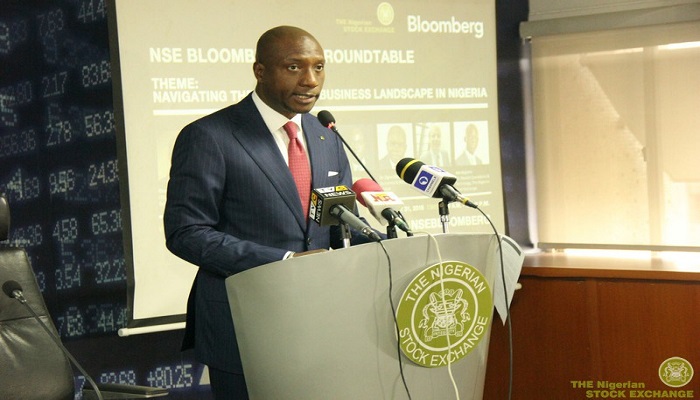The Nigerian Stock Market started the century on the back of an impressive 1,519% return in the decade ending 1999. This was a period of military rule where investment in stocks was still manual but reliable.
Investors at the time viewed the stock market as a viable investment and mostly invested in the long term patiently waiting for dividends. The stock market closed the decade with an All Share Index of 5,266.4 after closing at 325.3 in December 1989.
| Period | Return |
| Dec 89 – Dec 99 | 1519% |
| Dec 99 – Dec 2009 | 295.5% |
| Dec 2009 – Dec 2019 | 28.9% |
1999 – 2009
The decade ending 1999 will forever be remembered for ushering in Democracy in Nigeria. The newly elected government of President Obasanjo promised market and economic reforms renewing hope for an era of unprecedented economic growth.
At the start of the decade (or millennium) in 2000, investors had high expectations for what was then the second-largest economy in Africa. Capital control laws were relaxed allowing foreign investment inflow into the country.
By the time the decade was closing in 2009 the All-Share Index increased to 20,872.2 as more companies listed on the exchange following the privatization of government assets. The banking industry consolidation engineered by former CBN Governor, Charles Soludo, also brought about a new wave of listing helping the market capitalization rise during the decade.
[READ ALSO: How to use profits to determine what stock to buy(Opens in a new browser tab)]
The decade was also fraught with monumental gains and losses particularly between 2006 and 2009 when the stock market promised so much to investors. Following the banking consolidation of 2004 and 2005, banks doled out billions in margin lending to investors propping up the value of stocks. In fact, by the end of 2017 the stock market capitalization rose to 57,990 before crashing to 20,872.2 at the end of the decade.
Investors had lost trillions in investments leading to the creation of the Asset and Management Company of Nigeria (AMCON) helping midwife a resuscitation of the banking and financial sector. However, many Nigerians still lost trillions of Naira damaging any future demand the stock market may have attracted in the coming decade.
The All Share Index closed the decade with a return of 295.5%
2009 – 2019
At the start of the decade, investors were reeling from losing massively from the stock market crash. Most passive investors couldn’t buy any other hype the stock market had to offer, preferring to invest in Ponzi schemes despite its attendant risks.
The new CBN Governor, Sanusi Lamido Sanusi introduced new reforms that opened up the fixed income market allowing investors to repatriate their investments freely and without restrictions. We also had a new CEO at the Nigerian Stock Exchange with Oscar Onyema, fresh from the United States leading the exchange.
He was expected to help bring back interest in Nigerian stocks, reform the capital markets, introduce transparency in pricing and quotations, ensure corporate governance structures and in place and functional, digitalize the exchange and demutualize the stock market. These objectives were to lead to a renewed interest in the stock market.
It all seemed to be going to plan as Foreign Portfolio Investment into equities rose from $3.69 billion in 2011 to an astonishing $15.1 billion by the end of 2013. Total foreign portfolio inflows between 2011 and 2014 were $42 billion helping boost stock market capitalization to as high as 41,239.2 at the end of 2013. Oscar Onyema at some point declared that the Stock Market could be worth $1 trillion by 2016. But that was not to be.
The decade long decline, however, started in mid-2014 following the crash of oil prices. By the end of 2014, stock market capitalization plummeted to 34,657.2 while foreign portfolio investment inflow dipped to $11,448.16. FPI in the first half of 2014 accounted for about 60% of total inflows.
Things got worse in 2015 as oil prices continue its fall taking with it foreign investor inflows. The devaluation of the naira reduced FPI to $4.6b in 2015 and an all-time low of $859 million in 2016. The All Share Index also fell to 26, 874.6 by the end of 2016 as Nigeria fell neck-deep into a recession.
By the end of the decade, the stock market closed at 26, 842.1 posting a decade to date return of just 28.9% the lowest of the three decades under review. To put this into context stocks in the United States posted an astonishing return of 188% in the decade. At 28.9%, investors who held their money in the bourse for this long would have underperformed all fixed income securities.
Interesting to note that except for 2015 and 2016, most blue-chip companies have continued to post profitability growth suggesting that the stock market is suffering mainly from poor demand over the loss of investor confidence in the macroeconomy and government policies.
For example, Pension Fund Assets in equities was about N421 billion in 2013 compared to treasury bills assets of N365.2 billion in the same year. However, by October 2019 Pension Fund investments in equities and treasury bills were N475.6 billion and N2.3 trillion buttressing lack of demand in the stock market.
Whilst the stock market has underperformed over the period, it has also recorded significant improvements. We now have more stock brokerage firms offering mobile and online access to their platforms.
FinTech companies are also changing the way retail investors can access the stock market. Transparency is also much better as companies now comply better with listing and reporting requirements helping diminish the arbitrage that previously existed in the market.
